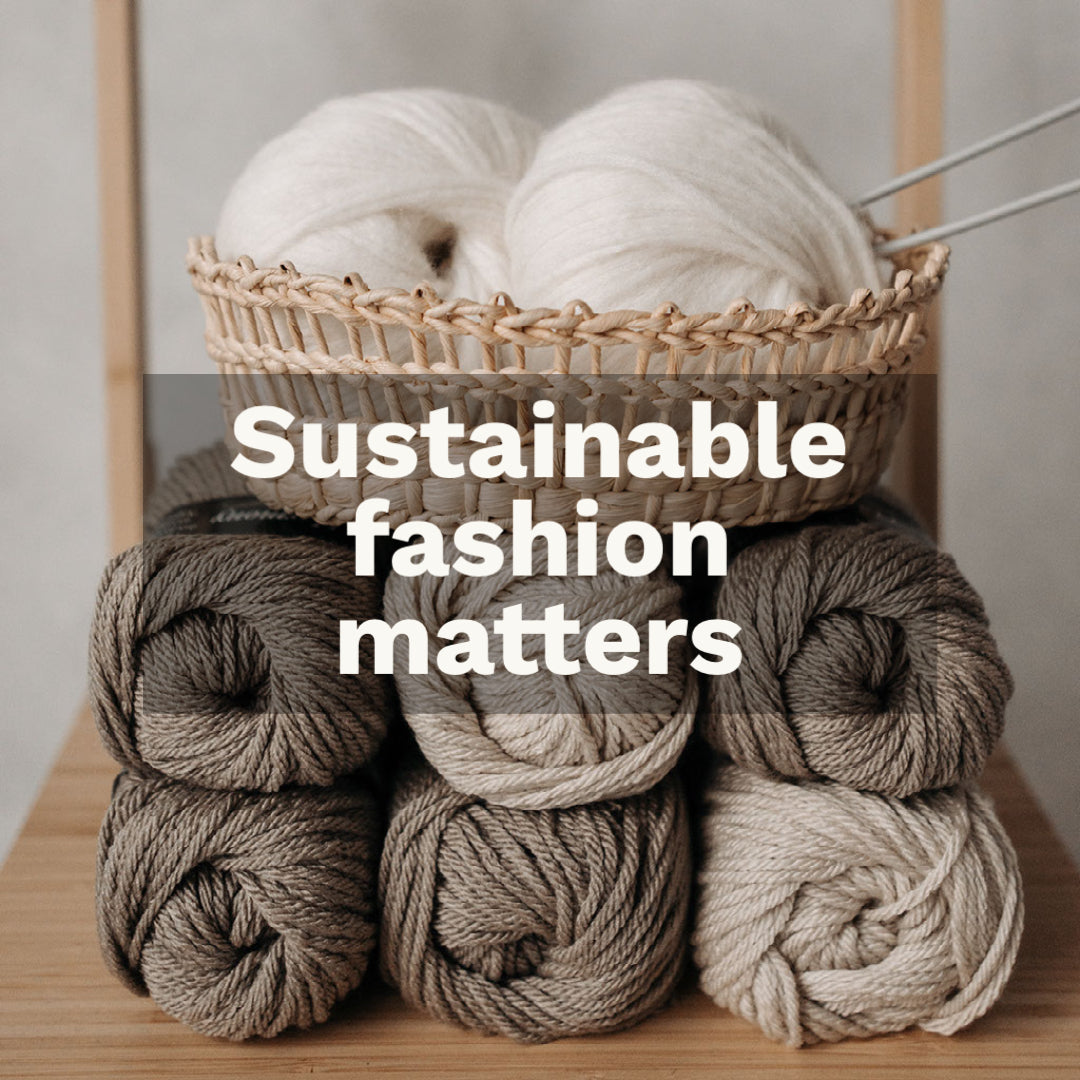We always hear ethical and sustainable fashion is good for the environment but did you know it’s good for you too? Unlike fast fashion brands, ethical fashion values people and the environment over profit.
We’ve put together 7 reasons why slow and ethical fashion is so important, and the benefits of producing ethically.
Top benefits of sustainable and ethical fashion
1 - Saves money in the long run
Have you noticed how fast a $10 t-shirt falls apart? Maybe you get to wash it a handful of times before it starts to look worn. But that’s not the case with slow-fashion garments! Higher quality clothing means you get more use out of them, which means you’ll save money in the long run, especially for the essential foundation pieces you’ll wear repeatedly. A cheap t-shirt will last you a few months to a year, but a high-quality t-shirt may last a decade if cared for properly. Still skeptical? Take a look at this blog where we break down the true cost of a t-shirt.
When Miik first started, we focused on creating clothing that would last using eco-friendly fabrics. We made it our mission to create versatile, timeless staples that can be worn year after year without fading or losing their shape. Donna, our founder and designer, is wearing Miik clothes she designed when she first started the business back in 2011. They still look brand new!
2 - High-quality clothing
Sustainable fashion focuses on quality rather than quantity. The clothing is made of higher quality materials that are built to last, unlike fast fashion brands. Eco-friendly fabrics also tend to be softer and more durable. As a result, you discard a lot less than you would with fast fashion items. Focusing on quality helps reduce textile waste!
Did you know an average person discards about 37 kg of textile yearly? That’s roughly about the same size as throwing away 111 books.
This is why Miik has always chosen to use durable, sustainable fabrics with lower environmental impacts.

3 - Reduces carbon footprint
Did you know the fashion industry is responsible for 10% of carbon emissions worldwide? That’s more than international flights and maritime shipping combined altogether. Approximately 1.2 billion tonnes of carbon emissions are attributed to fast fashion!
Sustainable brands use natural materials that take fewer resources to produce, lowering the carbon footprint. It doesn’t just end there - by producing locally, you can drastically reduce your carbon footprint by not having items shipped from overseas.
Here at Miik, we produce everything locally to ensure we reduce our carbon footprint. You also have the opportunity to reduce your carbon footprint even further by adding a donation to Carbon checkout. For every $1 donated, it offsets 245 pounds of global greenhouse gas emissions that would have otherwise been released into the atmosphere!
4 - Saves animal lives
When we think of animals and fashion, our minds immediately go to their fur or skin being used for clothes. But what if we told you the issue is on a much larger scale? Fabric dyeing and treatment process account for about 20% of the world's wastewater. When the wastewater is pumped back into our waters, it releases heavy toxins and metals which directly and indirectly affect the well-being of the animals, and humans too! The fashion industry is responsible for around 35% of oceanic primary microplastic pollution.
Sustainable brands use cruelty-free alternatives and value life over profit. They use non-toxic dyes and chemicals that are safer for you and the environment.
At Miik, Our contractors use environmentally-responsible processes for turning the natural fibres into yarn and for dyeing our fabrics. Our LENZING™ modal fibres have been certified as compostable and biodegradable under industrial, home, soil and marine conditions, and can fully revert to nature. To read more about the sustainable fabrics we use, click here.
5 - Requires less water to make
Did you know it takes 700 gallons of water to make ONE t-shirt? That’s how much water we drink over 3 years. Now imagine throwing away 10 t-shirts per year because you bought them super cheap on sale, and they just don’t look new anymore. That’s 7,000 gallons of water used to create those 10 t-shirts… now in our landfills.
Sustainable fashion brands use higher quality materials that last YEARS, meaning you don’t have to throw away your basic t-shirts anytime soon. Plus, they utilize processes that use less water to produce.
As we mentioned before, we use non-toxic dyes for our fabrics at Miik, and our manufacturers have implemented water recycling.

6 - Supports safe working conditions
Did you know that some textile workers get paid about USD 26/month in Ethiopia? With no rules or regulations protecting their rights and well-being. There have been numerous historical industrial incidents that claimed the lives of many people due to the lack of oversight and care for human life in the textile industry.
Canadian producers like Miik are held to stricter labour laws. Plus, having everything made locally gives us the chance to see the factory conditions firsthand. We can guarantee a safe, ethical, and respectful working environment for every employee involved in our supply chain by producing in Canada.
7 - Better for our health and our planet
We already talked about how many toxins get released into our waters… but that’s not all. Over 8,000 chemicals are used in textile production. Formaldehyde-based resins, ammonia, acetic acid, optical whiteners, soda ash, caustic soda, and bleach are just a few of the toxic substances that may be found in textile dyes.
Long-term overexposure to these toxic chemicals causes health issues for factory workers and those who live near polluted rivers caused by chemical dyes. Contaminated rivers become lifeless, ruining the soils and drinking water.
All of our fabrics have received the Standard 100 by OEKO-TEX® certification, meaning every thread, button and other accessory gets tested for harmful substances, making them safer for both you and the environment.

Now it’s your turn…
It all starts with changing our mindsets and behaviour. Take good care of the clothes you already own — be more conscious of your purchases, and buy less overall! If we all do our part for people and the planet, we can make a big difference together!







2 comments
I’m always impressed by the variety of products available and the competitive prices. It makes shopping here a real delight!
Wow, I’m truly impressed by the elegant collection showcased on your website! Each piece exudes sophistication and style, making it a delight to explore. From the beautifully designed dresses to the chic accessories, it’s evident that a lot of care and attention to detail has gone into curating this collection.